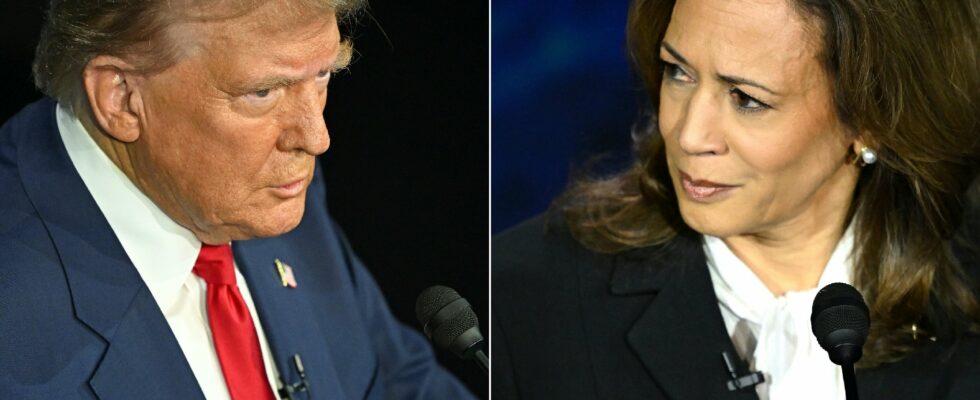Tick tock. November 5 has never been closer. 244 million American voters will soon be called to the polls. Some are waiting impatiently, others with apprehension. As the fateful date approaches, the candidates’ speeches are multiplying. So are the questions and the polls. According to the statistical survey aggregator 538nationally, Kamala Harris has a 2.8-point lead with 48.3%, compared to Donald Trump’s 45.5%. Did the Democrat’s confidence during the September 10 debate work in her favor? Will the Republican’s assassination attempts revive the race?
Published this Wednesday, September 18, a Quinnipiac University survey leans towards the first option. According to the latter, the Democratic candidate has taken a lead of at least five points over her opponent. And this, in two key states: Pennsylvania and Michigan.
51% in Pennsylvania, 50% in Michigan
In Pennsylvania, the Democratic vice president received 51% of the voting intentions of the 1,331 people surveyed by the institute from September 12 to 16. Donald Trump, for his part, obtained 45% with a margin of error ranging from 2.7 to 3.3 percentage points. If all eyes turn to the state nicknamed the “Keystone State” [Etat clef-de-voûte, NDLR]is that it would bring, in the event of a victory of the candidate, more electors than each of the six other “swing states”, these key states with undecided votes. In total, the winner would thus win 19 electors, out of the 270 required to access the Oval Office.
A few hundred kilometers further, Michigan. A state that is just as decisive for the election next November. According to the Quinnipiac University poll, Kamala Harris also dominates her opponent in this territory by winning 50% of the voting intentions of the 905 participants, against 45% for Donald Trump. But in this “swing state”, no vote is a given. On February 27, during the Democratic primary, a surprise opponent opposed Joe Biden: the blank vote. More than 100,000 voters expressed their discontent following the government’s refusal to call for a ceasefire in Gaza, and decided to vote “uncommitted”, the equivalent of the blank ballot in France. So, will the Democratic candidate suffer the unpopular decision of the American president? One thing is certain, Joe Biden’s withdrawal at the end of July has pushed the Democratic camp up in the polls, narrowing the gap with his opponent.
The economy, a decisive issue
But the race is far from lost for the Republican candidate. According to a poll by ABC News and IpsosDonald Trump could well prevail on the economic terrain. Along with the issue of customs duties, gas, shale oil and inflation, this burning issue of the campaign had been at the heart of the televised debate. And despite the relative importance of this exchange – a CNN estimate reports that only 4% of voters changed their voting intentions following the debate – Donald Trump seems to have scored points on economic issues. Conducted the day after the confrontation, the ABC poll reports that 46% of respondents would trust the Republican to manage the country’s economy. Kamala Harris, on the other hand, would win the votes of voters on social issues.
Among the voters who consider the economy as a decisive point in their vote: Latinos, the largest ethnic minority in the United States. A group of voters that the vice president is struggling to win back. According to an ActiVote surveyHispanic voters would vote 53% for Donald Trump, and 47% for Kamala Harris. Traditionally, Democrats obtained 2/3 of the Latino vote. A trend that was greatly reversed during Joe Biden’s term. The reason for this was the economic measures taken by the outgoing president that had not won over Hispanics. For several weeks, the Democratic candidate has been multiplying initiatives aimed at this group of voters, hoping to restore the Democratic camp’s image. Spanish-language advertisements were broadcast on the radio for the occasion. Next November, more than 30 million Americans of Hispanic origin will be called to the polls. Their votes could well be decisive in the race for the White House.
